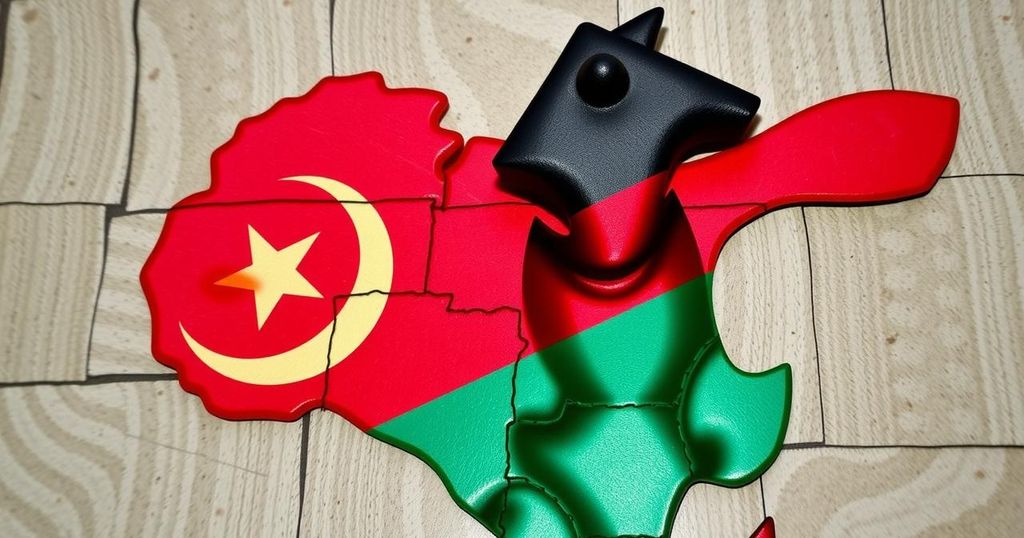Namibia, often perceived as a peaceful democracy, faces significant challenges that require scrutiny regarding its state functionality. Issues such as economic inequality, corruption, and social unrest threaten its governance. Although it has maintained political stability post-independence, ongoing reforms are essential to address vulnerabilities and ensure resilience against potential crises.
Namibia is often viewed as a tranquil democracy; however, it is essential to scrutinize its functionality against the criteria of state effectiveness. The concept of state failure encompasses a government’s inability to fulfill vital roles such as security enforcement, public service provision, and maintaining legitimate governance. Despite progress since independence in 1990, Namibia faces serious challenges, including economic inequality, institutional corruption, and social discontent, urging a reevaluation of its governance and resilience against potential crises.
State failure refers to a situation where a government cannot execute its fundamental duties, including ensuring security, delivering basic services, and upholding the rule of law. As Robert Rotberg posits, characteristics of a failed state include the erosion of legitimate authority, public discontent, and institutional frailty. The Fragile States Index (FSI) assists in cross-national assessments of state robustness, identifying those at risk based on various indicators such as economic disparity and governance stability.
Although Namibia has made significant advancements in democratic governance since achieving independence, its legacy from colonialism and apartheid contributes to persistent economic inequalities and land issues. Compared to neighboring countries like Botswana, which has capitalized on its mineral wealth for public benefit, Namibia struggles with severe unemployment and corruption despite peaceful elections and commendable environmental policies.
The nation faces urgent issues of economic inequality, with a Gini coefficient of 0.591 as of 2021, indicating a stark income gap that threatens social harmony, particularly in rural areas. Youth unemployment was reported at 33% in 2022, leading to increased frustration among the younger population. Corruption remains a pressing concern, highlighted by scandals such as the ‘Fishrot’ case, eroding public trust and exposing flaws in accountability mechanisms.
Furthermore, Namibia’s institutions, while generally more robust than in neighboring nations, contend with significant challenges such as underfunded services and ineffective land reform processes. Social unrest over economic conditions and gender-based violence signals public dissatisfaction, revealing deeper societal rifts that could destabilize the nation.
Access to essential services is uneven, with rural areas particularly affected by water and infrastructure deficits, exacerbated by climatic factors and inefficient management by entities like NamWater. Namibia’s economic reliance on natural resources renders it vulnerable to climate-related challenges, potentially affecting agricultural productivity and exacerbating existing inequalities without adequate investment in resilience strategies.
The FSI 2023 categorizes Namibia as ‘stable,’ yet indicates room for progress regarding economic equity and public service delivery. To fortify resilience, Namibia might benefit from diversifying its economy to include sectors such as agriculture and technology, enhancing anti-corruption measures, and investing in vocational training for its youth. Strengthening local governance capacities and fostering partnerships across sectors can also facilitate more effective resolutions to prevailing issues.
In conclusion, while Namibia is far from a failed state, it contends with notable vulnerabilities that if unaddressed, could jeopardize its governance and social cohesion. By focusing on reducing economic disparities, enhancing transparency in governance, improving public service delivery, and preparing for climate impacts, Namibia can continue its trajectory as a stable and peaceful nation, solidifying its democratic values and governance effectiveness.
The article centers on the challenges faced by Namibia in light of the global discourse on state failure, defined by a government’s incapacity to perform core functions crucial to societal stability and citizen welfare. It assesses Namibia’s political history post-independence, considering lingering effects of its past and comparing its current challenges relative to its regional counterparts. By evaluating critical factors such as economic inequality, corruption, and social unrest, the piece aims to provide a comprehensive analysis of Namibia’s state resilience and suggest actionable improvements.
In summary, Namibia exhibits characteristics of a stable democracy rather than a failed state. Nonetheless, pressing issues like economic inequality and corruption highlight the necessity for proactive interventions. By implementing targeted reforms aimed at enhancing transparency, addressing inequalities, and fortifying public services, Namibia can sustain its democratic climate and build a resilient nation prepared to mitigate future challenges while upholding its commitment to governance and social welfare.
Original Source: www.namibian.com.na






